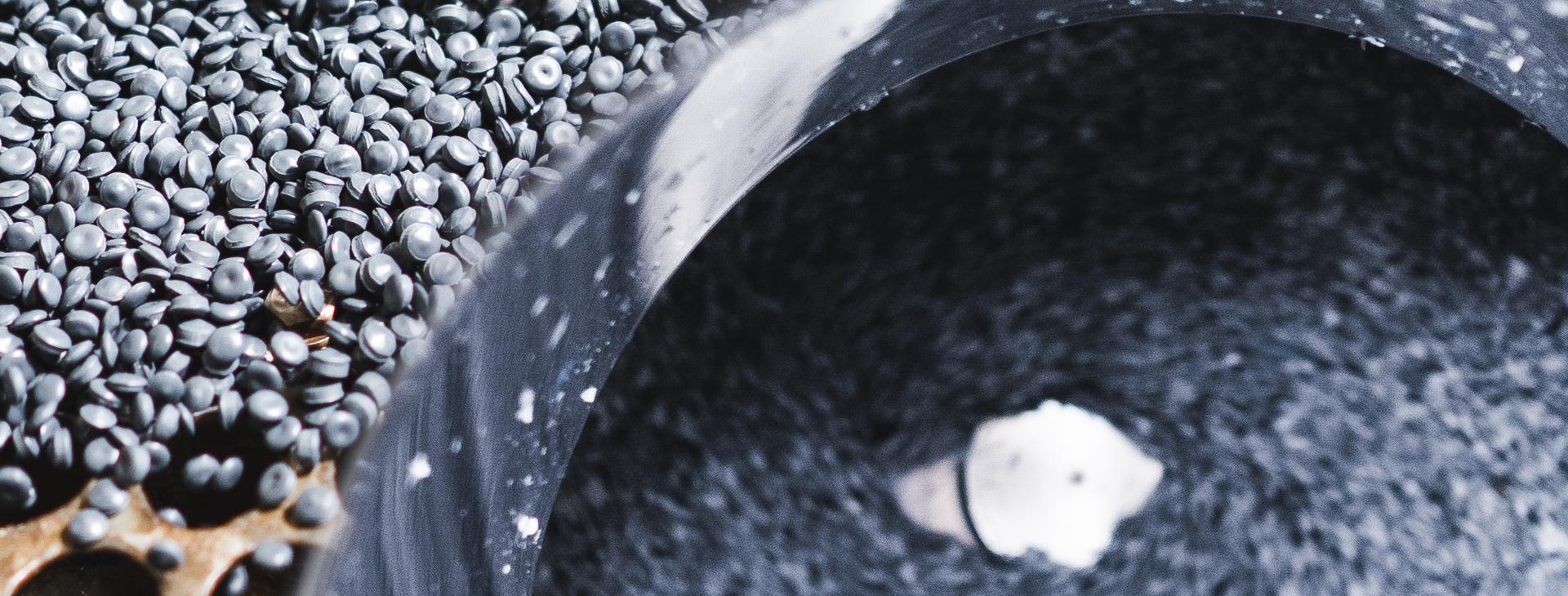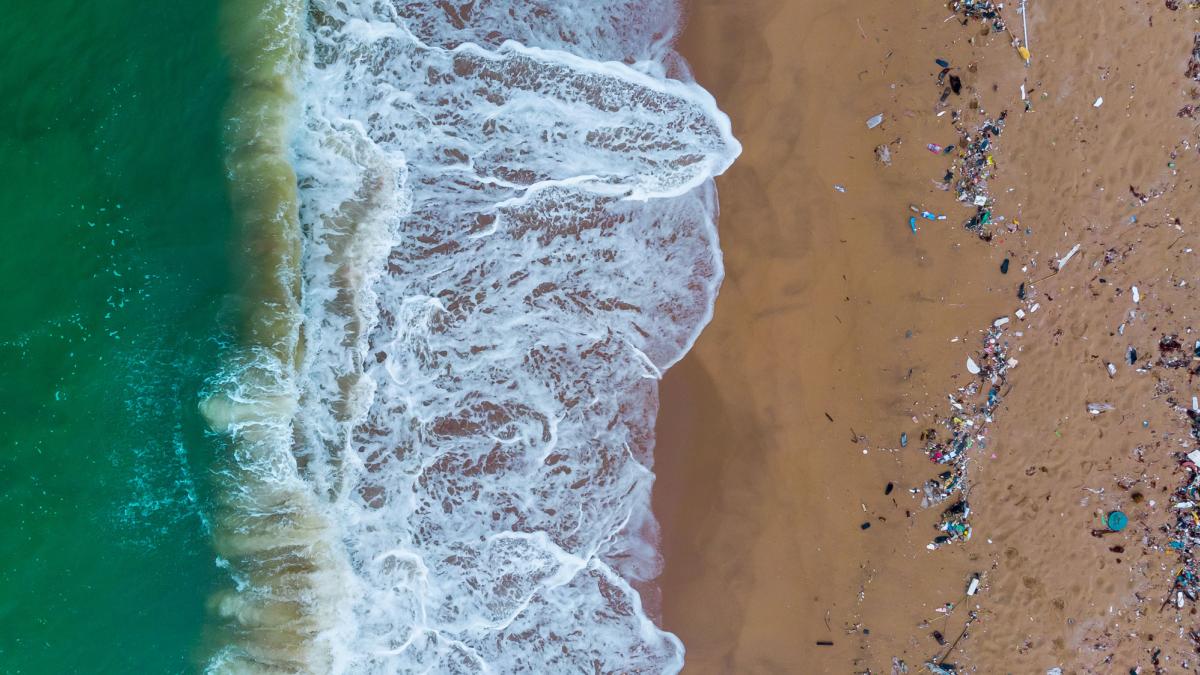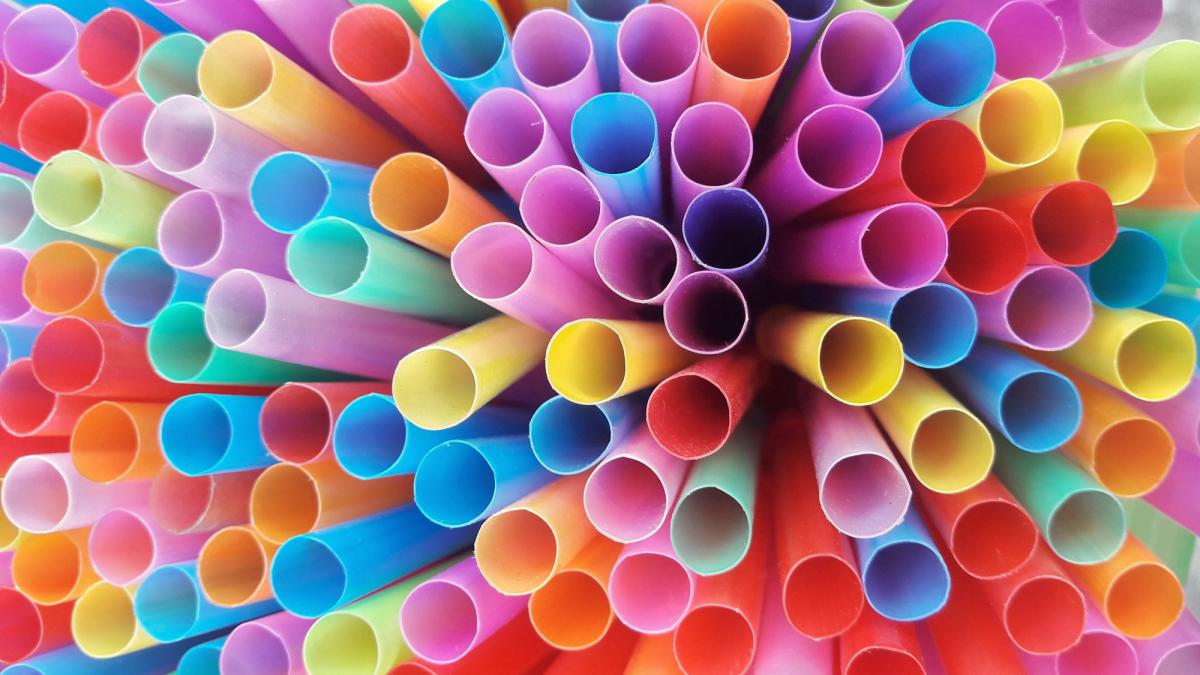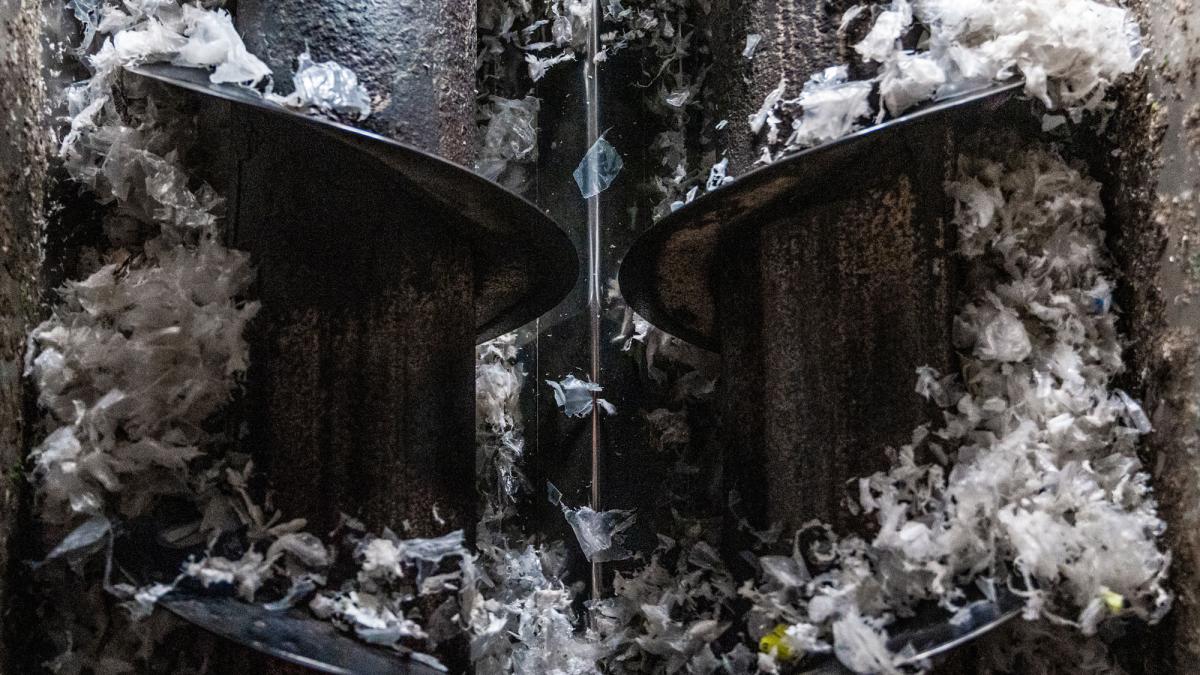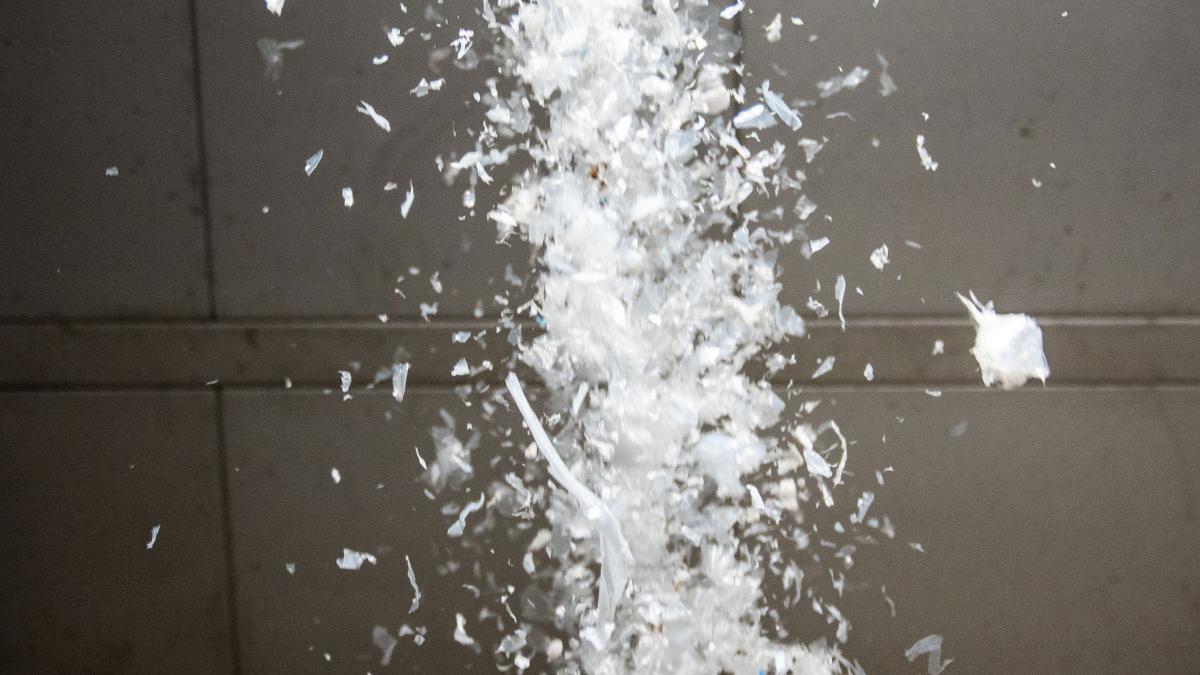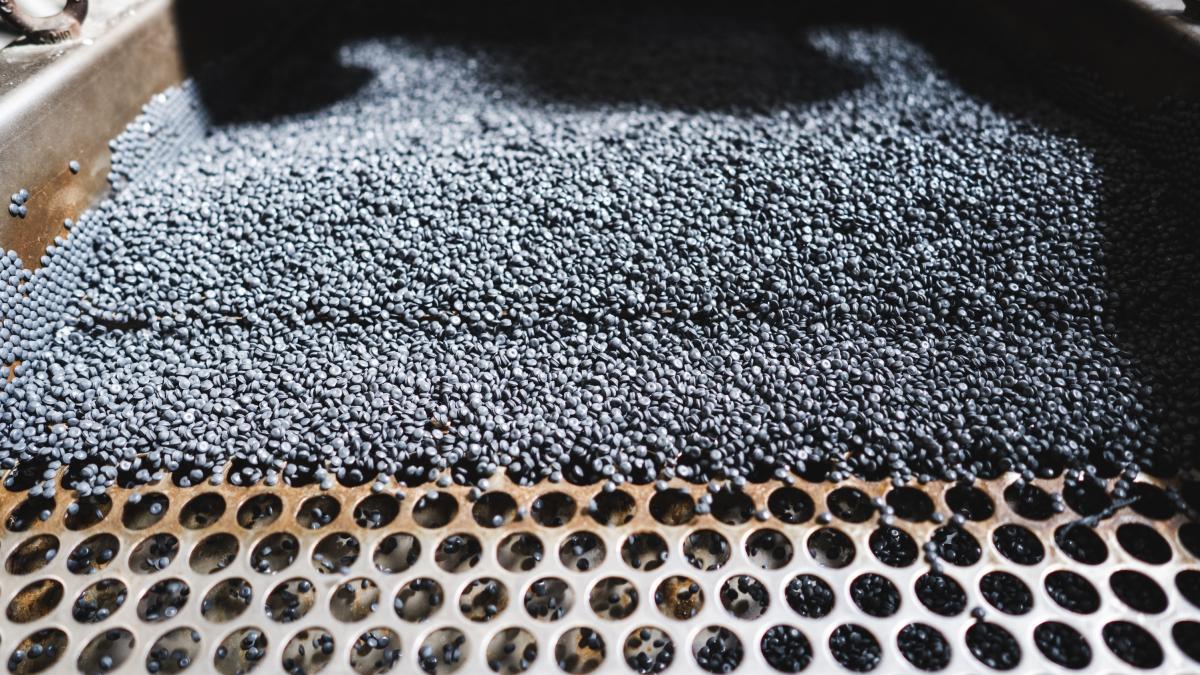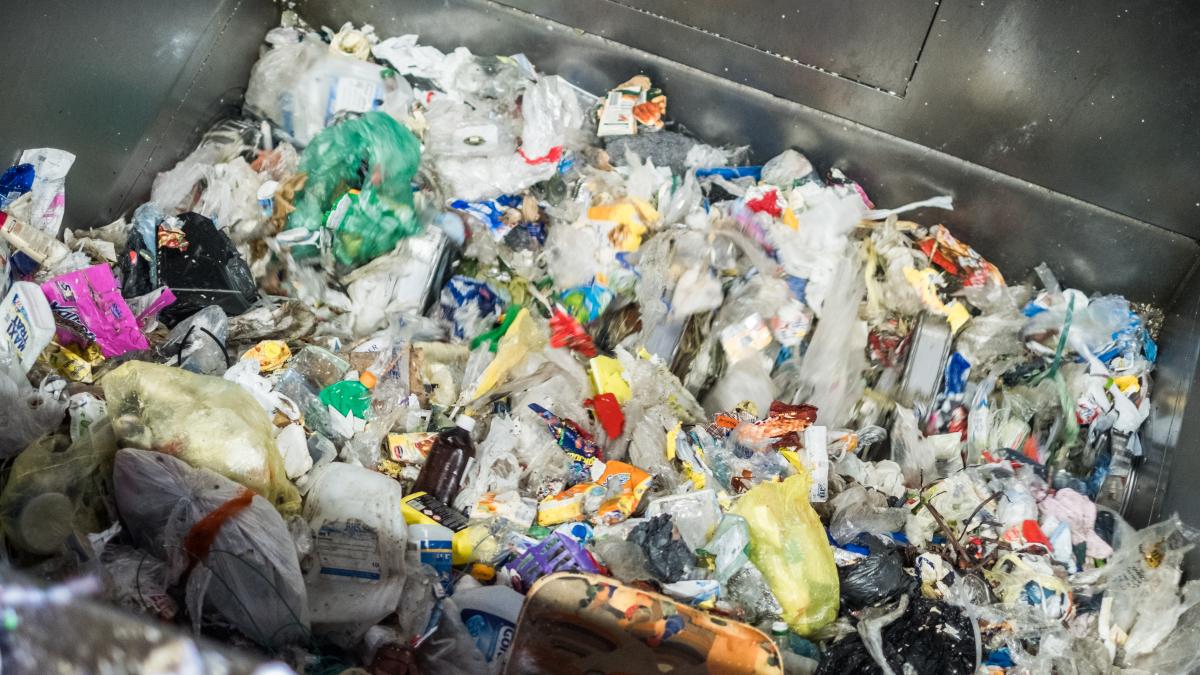Polymers pollute our environment
How can plastics recycling be improved?
We simply cannot imagine life without plastics. If only they didn’t have such a damaging environmental impact. It’s not always the material itself that causes the problems – it's inadequate plastics recycling, which can be improved in many areas.
They make cars and airplanes lighter, food longer lasting, and are the number one material in many industries – and yes – we’re talking about plastics, which have been on an unstoppable triumphant march since the invention of polyvinyl chloride (PVC) in 1912. Today, PVC, polyethylene and polypropylene are among the most widely used polymers in the world. However, there’s a flip side to the coin:
- According to the European Commission, around 25.8 million tons of plastic waste are produced in Europe every year.
- Less than 30 percent of this waste is currently collected for recycling.
- Globally, plastics are estimated to account for more than 80 percent of marine litter.
- In the EU, 150,000 to 500,000 tons of plastic waste end up in the sea every year.
How high is the plastic recycling rate in Europe?
This question implies that the reduction of plastics has long since become a political focus. The approach taken to reduce the amount of plastic waste is to increase the rate of recycling – and when it comes to plastics, there’s plenty of room for improvement: According to the European Union’s data only about one-third of the plastic waste generated is recycled (32.5 percent). Around 25 percent ends up in landfills and the rest is used for energy recovery.
However, the recycling rate alone is not the decisive factor in achieving sustainable waste management. What matters most is the quality and the scope of the recycling activities. Factors such as promoting reuse through better recyclates and avoiding waste in general play a crucial role in reducing the environmental impact.
EU Plastics Strategy:
Reduce use, promote the circular economy
Published back in January 2018, the EU Plastics Strategy aims to transform the way in which plastic products are designed, manufactured, used and recycled:
Ban on specific single-use plastic products:
Since 2021, specific single-use plastic products such as plastic plates, plastic cutlery, plastic straws and further single-use plastics have been banned across the EU.
Increased recycling rate:
The EU has set a target of recycling at least 50 percent of plastic waste by 2025 and 55 percent by 2030.
Promoting innovations:
The EU promotes innovations to reduce plastic waste and increase the use of recycled plastics.
More initiatives for more sustainability
Other initiatives also exist: The German Resource Efficiency Program III and the new EU Action Plan for the Circular Economy define measures for the use of plastic recyclates. The goal is to increase the production and procurement of plastic products from post-consumer recyclates (PCR for short).
To this end, the European Commission proposed new EU-wide regulations for packaging in November 2022. The main focus is on design improvements, such as clear labelling to encourage reuse and recycling. A transition to bio-based, biodegradable and compostable plastics is also being promoted.
Does oil still have a future as a plastic raw material?
One thing is clear: To achieve the ambitious targets, the recycling of plastics in particular must be improved. However, it is also clear that many problems still exist: More than half of Germany's plastic waste is still being simply incinerated because plastic products are often not recyclable or recycling is not financially viable. Moreover, recycled materials are very often not only more difficult to obtain than fossil primary materials, they are also of uncertain quality.This is why many still rely on crude oil as a raw material:
The study 'Stoffstrombild Kunststoffe' by the consulting firm Conversio shows that around 21 million tons of plastic were produced in 2021 alone, with almost 90 percent of that volume based on fossil raw materials such as crude oil. The problem with this? Both production and combustion generate enormous amounts of greenhouse gases that fuel climate change.
At the same time, the increase in the price of crude oil is only temporarily boosting the demand for recycled plastics. What is needed is investment in reprocessing technologies, more recyclable packaging and policy incentives and targets that will act as a driving force for change.
The advantages recyclates offer
It is, however, clear: If the EU is to achieve its goals, it must strongly promote the use of recyclates made from polyethylene (PE), polypropylene (PP), polyvinyl chloride (PVC) and PET. This would have lasting benefits:
- The need for new plastics would be reduced
- The carbon footprint of plastics production would be reduced
- The environmental impact of plastic waste would be reduced
However, not all plastics can be recycled. There are also limits to how often a plastic can be recycled before it loses its properties. This makes it all the more important to reduce the use of plastics overall and promote the use of reusable packaging and products.
Sustainability starts with plastics processing
You will have noticed that these goals will mean immense efforts and demand consistent action. Ultimately, all the stakeholders will have to work together to find effective solutions for improving recyclability: From the manufacturer, the consumers, the disposal and recycling industry, the regulatory authorities to the necessary mechanical material processing, which is at the beginning of the value chain.
And that’s where Vecoplan comes in! With many years of experience and extensive expertise in a wide range of plastic materials, we are dedicated to overcoming the challenges of plastics reprocessing. With an approach that’s professional, individual and ideal for the task at hand. Are you planning to invest in a shredding solution or processing plant? Let us advise you now.
